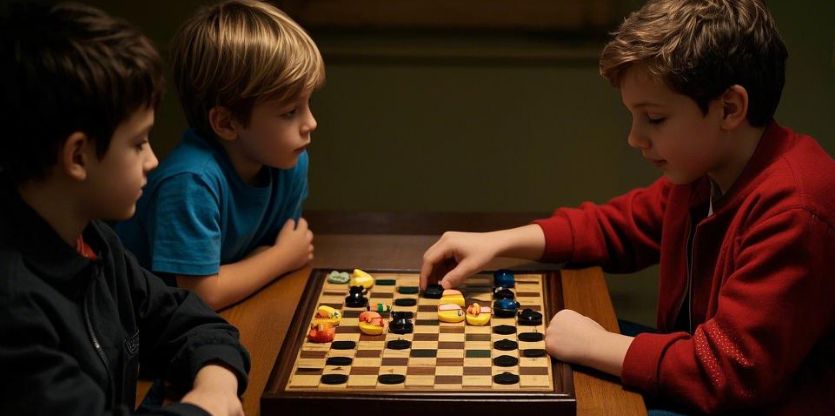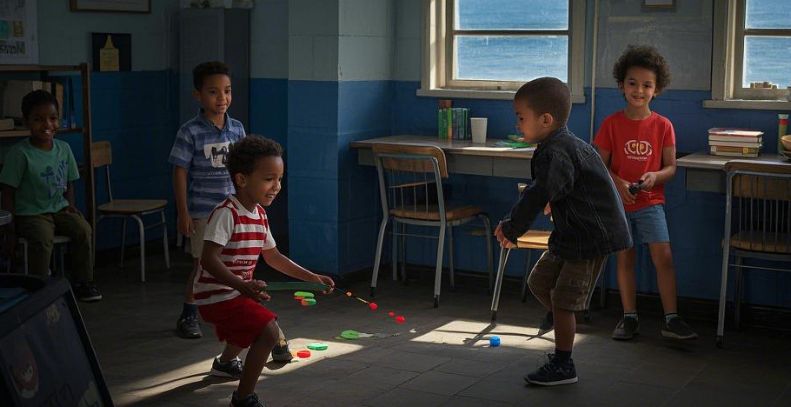The development of logical thinking is a crucial aspect of children's cognitive growth. Logical reasoning forms the foundation for problem-solving, decision-making, and academic success. Recent research has shed light on effective strategies to enhance children's logical thinking skills, showing that both genetics and environment play significant roles in this process. This article explores current scientific findings and practical approaches for fostering logical thinking in children.

1. The Role of Early Cognitive Development
According to recent studies, the early years of a child's life are critical for the development of logical thinking abilities. During this period, children exhibit an astonishing capacity to absorb and process information. Research from the University of Chicago highlights that early exposure to problem-solving tasks that require logic—such as puzzles, games, or even story problems—can lay a strong foundation for reasoning skills. Studies suggest that children as young as three can begin to demonstrate basic logical reasoning, such as understanding cause-and-effect relationships or recognizing patterns.
One important area of focus is executive function (EF), a set of cognitive processes that include working memory, cognitive flexibility, and inhibitory control. Research has shown that a strong EF is linked to better logical thinking. Children who develop their executive functions early on are better equipped to solve complex problems and analyze information logically. Games that challenge EF, such as memory tasks, sorting activities, or games like "Simon Says" that involve attention and inhibition, can stimulate cognitive growth and enhance logical thinking skills.
2. The Impact of Mathematics and Pattern Recognition
Recent research emphasizes the connection between mathematical learning and logical thinking. Studies have demonstrated that mathematical skills are not just about numbers—they are deeply linked to logical reasoning. For instance, a study published in the Journal of Educational Psychology found that children who engage with activities that involve counting, measuring, and sorting develop better problem-solving skills than those who do not. These activities promote the ability to recognize patterns and make predictions, which are key elements of logical thinking.

One example of this is the concept of "mathematical play," where children are encouraged to explore number concepts through engaging, hands-on activities. For example, using blocks or shapes to solve problems, or involving them in daily activities that require counting or estimating, can help children internalize logical thinking processes. As children grow older, the introduction of more complex mathematical concepts such as geometry, algebra, and even basic coding can further strengthen their ability to reason logically.
3. Language and Logical Thinking
A recent body of research has underscored the role of language in the development of logical reasoning. Children who are exposed to rich verbal environments tend to develop stronger logical and analytical skills. According to a study conducted at Harvard University, language exposure helps children organize their thoughts and think more systematically. This is especially important because language enables children to verbalize their reasoning processes, making it easier for them to organize information, identify patterns, and draw conclusions.

Reading aloud to children and engaging in discussions about stories can significantly enhance their logical thinking. For instance, asking children to predict what will happen next in a story, or encouraging them to explain the motivations behind characters’ actions, exercises their ability to think logically and make connections. Additionally, teaching children how to frame their thoughts through "if-then" scenarios and logical statements (e.g., "If I add this block to the tower, will it fall over?") can help build reasoning skills.
4. Social Interactions and Collaborative Problem Solving
Collaborative problem-solving has been shown to foster logical thinking in children. A study from the University of California, Berkeley, found that children who engage in group activities that require them to solve problems together tend to develop stronger logical reasoning skills. Through social interaction, children learn how to negotiate ideas, compare different solutions, and think critically about their own reasoning processes.

For instance, group activities such as board games, team-based puzzles, or even simple cooperative tasks like building a structure with blocks, encourage children to think critically and logically while considering others' viewpoints. Collaborative play not only helps children develop their logical thinking skills but also nurtures their communication, teamwork, and conflict-resolution abilities.
5. Digital Tools and Technology
In the digital age, children are increasingly exposed to technology that can aid in developing their logical thinking skills. Research indicates that educational apps and games designed to challenge children’s cognitive abilities can have a positive impact on their reasoning skills. Games that promote pattern recognition, logic puzzles, and strategy-building, such as Rush Hour or Osmo coding kits, have been found to improve problem-solving abilities and logical thinking.
However, it is important for parents and educators to guide children's screen time, ensuring that the digital content they engage with is purposeful and aligned with cognitive development goals. Limiting passive screen time and prioritizing interactive, educational experiences can enhance children’s logical thinking in a meaningful way.
Conclusion
Recent scientific research has provided valuable insights into how we can nurture children's logical thinking abilities. By incorporating strategies that encourage early cognitive development, mathematical reasoning, language use, social interaction, and digital engagement, we can help children build strong logical thinking skills. These abilities not only serve children in academic settings but also equip them with the cognitive tools necessary to navigate complex life challenges. As we continue to understand more about brain development, educators and parents alike are in a prime position to help children cultivate logical thinking, setting them up for success both in and out of the classroom.